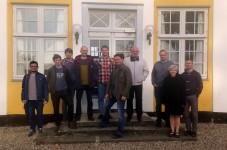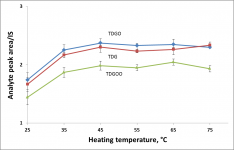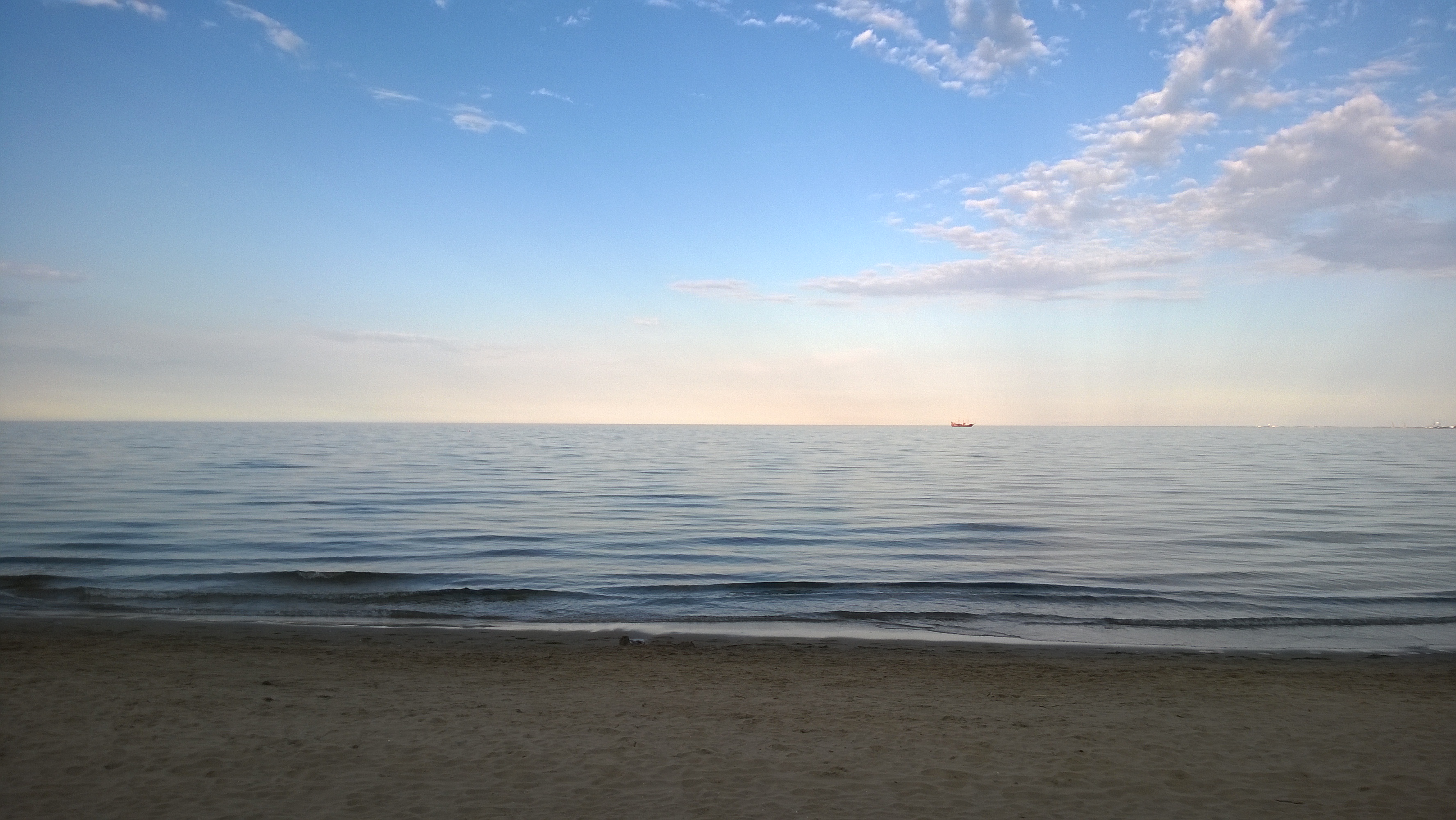MODUM
TOWARDS THE MONITORING
OF DUMPED MUNITIONS THREAT
The project aims at the establishment of the monitoring network observing Chemical Weapons dumpsites in the Baltic Sea, using Autonomous Underwater Vehicles (AUV’s)and Remotely Operated Underwater Vehicles (ROV’s), and utilizing existing research vessels of partner institutions as launching platforms. Project consists of the test phase, which will serve choosing best available solutions for the difficult Baltic Sea environment, Survey phase, which will locate actual objects of concern, and monitoring phase, which will concentrate on the collection of environmental data close to the objects of concern. Project will concentrate on three representative areas chosen during the first phase of the project, and will provide a solution for expanding such a network to all areas of concern in the Baltic Sea area. Performed monitoring activities will include habitat status evaluation, fish health studies and modeling of possible threats to adjacent areas.
The project is planned for three years, starting in 2013 until the end of 2015, with the possible follow up, should additional funds be obtained.
Summer School First Announcement

NATO – MODUM summer school in underwater munitions Summer school will take place in Halifax | Canada | from 27th June to 1st July 2016. Summer School will be conducted in Halifax, Canada by IDUM in Cooperation with Dalhausie University. Predicted participation is ca. 40 persons, including teachers. The summer school will last 5 full days, and cover all project activities, based on existing work packages. Preliminary Programme for 5 Days: Day 1 Introduction to the project and overview of methods, risks. What is monitoring? Day 2 Fieldwork: Survey/ Identification of objects. Day 3 Fieldwork: Sampling, in situ measurements,…
Meeting in Sandbjerg

4th Project Meeting The fourth project meeting was convened at Sandbjerg, Denmark in days from 26 to 27 October 2014. The project was organized by the Danish project Co-director Prof. Hans Sanderson. Following Agenda was adopted: The meeting was attended by project partners from AU, IOPAS, VERIFIN, FOI and IORAS. Project progress was presented, and preparation of 4th interim report was discussed with co directors. Project progress AU has presented toxicity results. Several important data is generally missing in the literature – mainly on the chronic toxicity , and both acute and chronic toxicity of cyclic degradation products…
Cruises
WP3 starts with the selection of optimal sensors and equipment. This will include Autonomous Underwater Vehicles (AUV) with payload including acoustic sensors and magnetometer, as well as Eco-mapping capabilities and Remotely Operated Vehicles (ROV) equipped with video and acoustic cameras, for objects detection and identification, and multi sample collection system This task will also select the best equipment for the WP4 Monitoring. Based on experience of co-directors, best equipment will be selected and rented for the test purposes. Test cruises will be performed in month 6. A test cruise will be performed in cooperation with NATO CMRE Center in the…
Mobile Detection developement

Mobile Detection developement (Tallinn University of Technology) The main research in the last six months (from October 2014 to April 2015) was focused on the following: The optimization (amount of dervatizating agent, derivatizating temperature and heating time) of derivatization procedure of sulfur mustard hydrolysis and oxidation products (thiodiglycol (TDG), TDG sulphoxide (TDGO) and TDG sulphone (TDGOO)) The optimization of the separation conditions (buffer pH and concentration, capillary temperature and applied voltage). Validation of capillary electrophoretic separation method with direct UV detection (linearity, precision, LOD and LOQ). Preliminary studies of sediments (spiking of sediments with TDG, TDGO and TDGOO and…
Hamburg Meeting
MODUM 4th Meeting Title 4thMODUM working Meeting Location Hamburg Date 27-29 May 2015 27-May MODUM Start End Time Item Contact 12:00 13:00 1:00 Lunch 13:00 13:30 0:30 Project Status Jacek Bełdowski 13:30 14:00 0:30 Financial Issues Jacek Bełdowski 14:00 15:30 1:30 Reports of Partners (15 minutes each) All partners 15:30 16:00 0:30 Cofee break All partners 16:00 17:30 1:30 Reports of Partners (15 minutes each) All partners 17:30 Free time in Hamburg All partners Sum 5:30 28-May MODUM Start End Time Item Contact 8:30 9:30 1:00 Summary of reports Jacek Bełdowski 9:30 10:30 1:00 Parallel Sessions 10:30 11:00 0:30 Cofee…
WP 4. Monitoring
This work package will be focused on the preparation of a suitable and operational monitoring strategy. It will also include sample and environmental parameters collection from the dumpsites, sample analysis as well as data management and assimilation into the models developed. Equipment tests and selection will be performed within WP3 Survey Task 4.1 Moored Station A moored station collecting oceanographic data affecting local mixing and sediment erosion processes will be deployed in the most hydrodynamically important area for the dumpsites region already during the test stage, built from existing equipment of IOPAS and IORAS. This will provide data for selection…
WP3 Survey
This work package will be focused on identifying and defining the areas for future monitoring. It will include the selection of best equipment, based on the scientific expertise and field tests. Task. 3.1 Equipment and post-processing methods WP3 starts with the selection of optimal sensors and equipment. This will include Autonomous Underwater Vehicles (AUV) with payload including acoustic sensors and magnetometer, as well as Eco-mapping capabilities and Remotely Operated Vehicles (ROV) equipped with video and acoustic cameras, for objects detection and identification, and multi sample collection system This task will also select the best equipment for the WP4 Monitoring. Based…
ECORisk
Advances of modeling on model requirements (based on assessment in model requirments, Task 5.6, deliverable 5.6.1., WP5 – Environmental Risk Assesment) Jaromir Jakacki, Institute of Oceanology PAS Mariya Golenko, Institute of Oceanology RAS As the main tools in the modeling part of this project it is planned to use two models: 1) Community Earth System Model (CESM) recently developed at National Centre for Atmospheric Research (NCAR) and University Corporation for Atmospheric Research (UCAR). The Baltic Sea version of this model was created and developed at the Institute of Oceanology. The model was implemented for the following configuration:…





